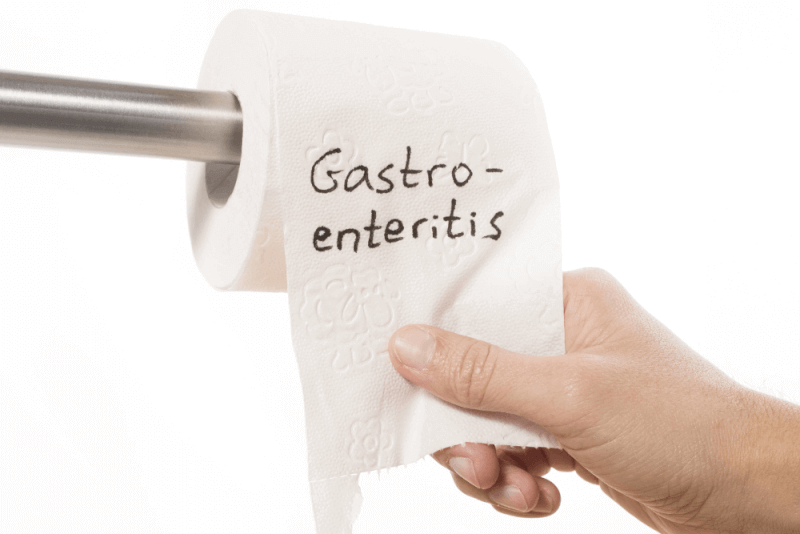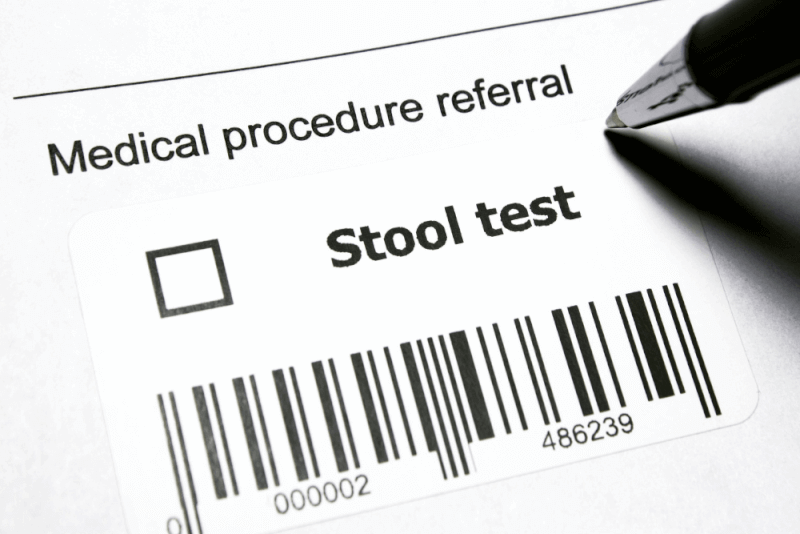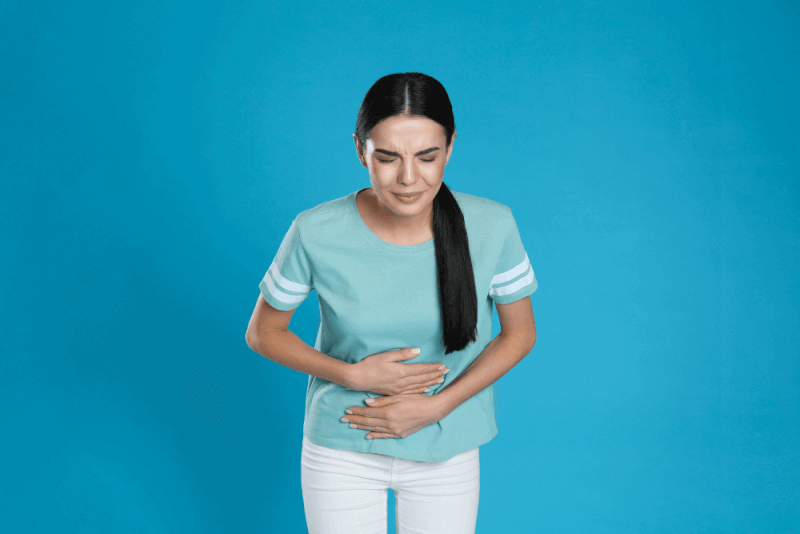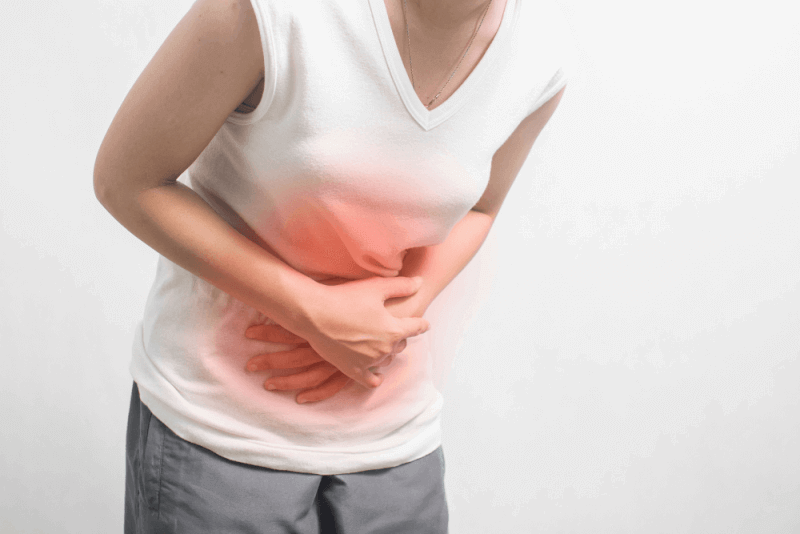What is Gastroenteritis?
Gastroenteritis is the inflammation of the stomach and intestines. This inflammation causes these organs to swell and become painful. Gastroenteritis often occurs when there is an infection in the gastrointestinal system, caused by bacteria and viruses, food poisoning, or infections like stomach flu. Certain chemicals can also cause gastroenteritis.
Gastroenteritis is divided into infectious gastroenteritis and chemical gastroenteritis. Infectious gastroenteritis is the most common type, caused by infections in the stomach or intestines from viruses, bacteria, fungi, or parasites.
Chemical gastroenteritis occurs when toxic chemicals that can contaminate food and water sources are ingested. Additionally, some drugs, including high doses of alcohol or drugs, can cause chemical inflammation of the stomach.
A significant portion of the population experiences gastroenteritis. In most cases, it is not severe. However, severe cases can occur in more vulnerable populations, making gastroenteritis one of the leading causes of death worldwide.
Gastroenteritis Diagnosis
Symptoms usually allow for the diagnosis of gastroenteritis. Factors that trigger the symptoms, including when they started, are also investigated. If unusual symptoms are seen, stool or blood tests may be requested for detailed investigation to rule out other conditions.
Gastroenteritis Symptoms
Symptoms of gastroenteritis involve both the stomach and intestines. Symptoms include:
- Diarrhea
- Nausea
- Vomiting
- Loss of appetite
- Abdominal pain and cramps
- Fever
- Fatigue
- Body aches
The initial symptoms of gastroenteritis appear suddenly. Diarrhea, stomach pain or cramps, nausea, and vomiting occur shortly after. If it progresses, systemic symptoms affecting the rest of the body begin to appear.
Causes of Gastroenteritis
Gastroenteritis occurs when the immune system reacts to protect the stomach and intestines from harm. Inflammatory cells are sent to fight infections and repair damaged tissues. This is usually an acute response to a temporary threat or injury. However, long-term gastroenteritis is uncommon.
Causes of Acute Gastroenteritis
Acute gastroenteritis is caused by infectious diseases or toxic chemicals. The causes of infectious diseases can be viral, bacterial, parasitic, or fungal infections. The most common causes of acute gastroenteritis are:
Viral Gastroenteritis
Viral infections are generally the most common cause of gastroenteritis. Viral infections, especially those caused by norovirus, are seen in 60% of all gastroenteritis cases. Gastroenteritis, also known as stomach flu, is not caused by influenza viruses. Viruses that can cause stomach flu include:
- Norovirus
- Rotavirus
- Astrovirus
- Adenovirus
- Calicivirus
- Sapovirus
Bacterial Gastroenteritis
Bacterial infections cause bacterial gastroenteritis. Common bacteria that cause gastroenteritis include:
- Campylobacter
- Staphylococcus
- Clostridioides difficile
- Shigella
- Salmonella
Parasitic Gastroenteritis
Parasitic infections cause parasitic gastroenteritis. Common parasitic infections include:
- Giardiasis
- Amebiasis
- Cryptosporidiosis
- Cyclosporiasis
Fungal Gastroenteritis
Fungal infections can cause fungal gastroenteritis. Common fungal infections include:
- Candidiasis
- Aspergillosis
Chemical Gastroenteritis
Chemicals can injure and damage the surfaces of the stomach and intestines, leading to various infections. Even small amounts of chemicals can cause infections. The most common causes of chemical gastroenteritis are alcohol and certain drugs. Causes of chemical gastroenteritis include:
- Heavy metal poisoning
- Overuse of digoxin
- Plant toxins such as poisonous mushrooms
- Overuse of colchicine
- Cocaine
- Overuse of NSAIDs
- Chemotherapy drugs
- Excessive alcohol consumption
Gastroenteritis Risk Factors
Almost everyone can get stomach inflammation. However, the likelihood of experiencing gastroenteritis increases with the following conditions:
- Being over 65 or under 6 years old
- Frequent use of certain drugs or alcohol
- Living or working in child care facilities
- Having a chronic illness that weakens the immune system
- Consumption of raw fish or meat
- Traveling to underdeveloped areas
Complications of Acute Gastroenteritis
Gastroenteritis usually resolves on its own within a few days. Therefore, dehydration is the primary complication. Children and the elderly are particularly at risk of dehydration. Frequent diarrhea or vomiting causes patients to lose fluids and electrolytes. If these losses are not quickly replenished, electrolyte imbalances can develop.
Prolonged gastroenteritis can damage the stomach and intestines. Ulcers may develop in these organs. Additionally, infections or toxins causing gastroenteritis can cause permanent damage to the body.
Gastroenteritis Treatment
In most cases, medical treatment for gastroenteritis is supportive. Therefore, treatment supports the body's natural healing process rather than curing gastroenteritis. Treatment options include:
- IV fluids to prevent or correct dehydration and electrolyte imbalances
- Parenteral nutrition to avoid stressing the digestive system
- Medications to treat symptoms like nausea and diarrhea in some cases
In some cases, drug treatment may be recommended to eliminate the causes of acute gastroenteritis. For example, antibiotics or antiparasitic drugs may be prescribed to treat bacterial or parasitic infections.
Chemical gastroenteritis caused by toxic poisoning requires additional treatments to help clear the toxin from the body. The treatment applied varies depending on the toxin and the patient's condition.
How to Prevent Gastroenteritis
Not all cases of gastroenteritis are preventable. However, there are many things that can be done to reduce personal risks and prevent the spread of gastrointestinal infections in the community. Methods include:
- Washing hands thoroughly
- Following and thoroughly implementing cleanliness guidelines in crowded environments and disinfecting
- Preparing food safely
- Avoiding consumption of suspicious food and drink while traveling
- Using medications only as directed
- Avoiding high alcohol intake
Gastroenteritis Nutrition
Patients with gastroenteritis often do not have an appetite. The irritation of the stomach prevents the digestion of many foods that are normally consumed. Therefore, a limited diet should be followed for a few days until the inflammation decreases. This diet should focus on easily digestible soft foods and avoid foods that can worsen gastrointestinal symptoms.
Foods that patients can consume during this time include:
- Crackers
- Bananas
- Soup
- Toast
- Sports drinks
- Hydration formulas
- Rice or oatmeal
- Ice
- Applesauce
- Watermelon
Foods that patients should avoid during this time include:
- Caffeinated drinks
- Sweets
- Artificial sweeteners
- Fatty foods
- Dairy products
- Nuts
- Alcohol
- Processed foods like chips
- Red meat
- Spicy foods








